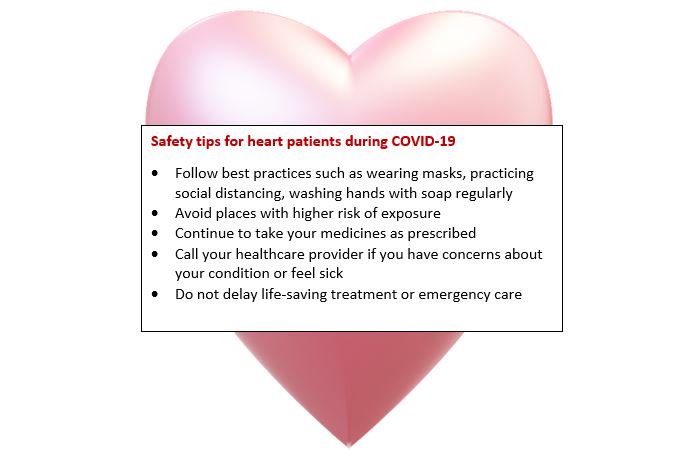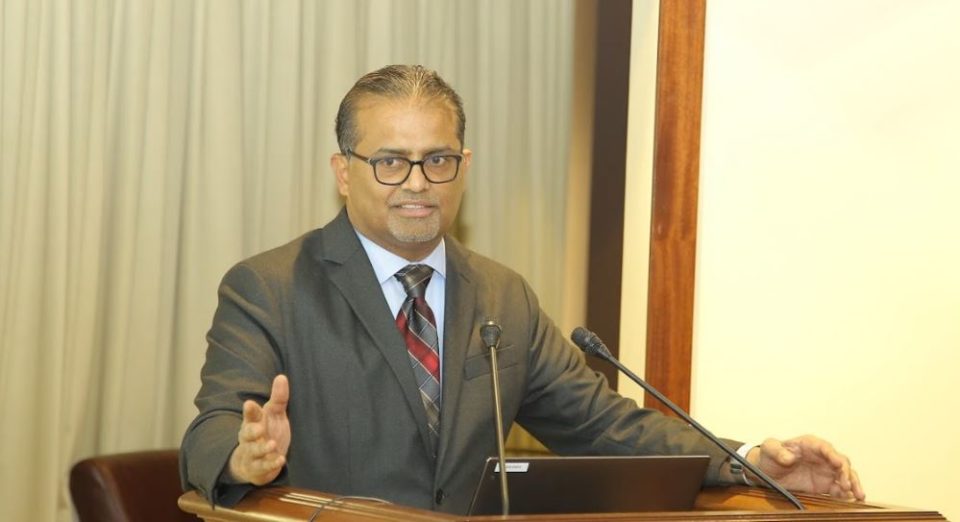BY NAVAMI NAIK*
As new cases of coronavirus infections continue to increase in many states, an overarching concern is the higher risk for people with existing medical conditions such as heart disease.
We sat down with cardiologist Dr. Sreeni R. Gangasani* to understand how the coronavirus affects people with heart disease and how they can protect themselves during this pandemic. Dr. Gangasani is a past President of the Georgia Association of Physicians of Indian Heritage (GAPI) and a current director of the GAPI clinic. He was past Chair of the Department of internal medicine at Northside Gwinnett Hospital and a past trustee and Vice Chair of the American Association of Physicians of Indian origin (AAPI).
According to the Centers for Disease Control and Prevention (CDC), people of any age having a serious heart condition are at an increased risk for severe illness from COVID-19. Could you please tell us more about this?
Patients with heart disease, including those with a prior history of having a heart attack or heart failure, are not at an increased risk of contracting the coronavirus as long as they practice regular precautions such as wearing masks, maintaining social and physical distance and washing their hands with soap on regular basis.
However, it is true that patients with heart disease have an increased risk for severe illness from COVID-19 as well as a higher risk of complications once they contract the virus. Patients with heart disease also have higher mortality rates from the COVID-19 infection. While the mortality is about two to three percent in the general population, that mortality increases to 10% in patients with heart disease. The risk increases further in older adults with heart disease.

How can people with heart disease protect themselves from COVID?
Until a definitive treatment or vaccination is available, practicing prevention and avoiding places with a high risk of exposure is really the best way to stay safe.
It is important that people with a history of heart disease should continue to take their routine medications as prescribed by their healthcare provider. They should continue to have follow-ups with their clinicians, preferably via telehealth appointments.
What should patients do if they experience symptoms such as chest pain or shortness of breath related to heart disease?
During these challenging times, patients can experience heart attacks or stroke-like symptoms that need to be addressed promptly to prevent both short-term and long-term complications. Not addressing the problem immediately, significantly increases the chance of suffering from complications, including death or severe disability.
Patients experiencing such symptoms should contact their healthcare provider right away or should go to the emergency room. Currently, most doctors are able to conduct patient consultations through telehealth appointments, reducing the potential risk of exposure for both, the doctor as well as the patient. So, there is no reason for patients to hesitate in setting up an appointment with a doctor should new symptoms occur.
What can people do to maintain their heart health now and in the future?
Maintaining a low-fat diet, exercising regularly for 40-60 minutes a day, getting six to eight hours of sleep every day, avoiding smoking, keeping your blood sugar and blood pressure under control, and going to the doctor’s office for regular check-ups are all important ways to maintain heart health.
*Dr. Sreeni R. Gangasani is a practicing Cardiologist in Lawrenceville, Georgia with board certifications in Cardiovascular disease, Echocardiography, Nuclear cardiology, Heart failure and transplantation. He is founding partner of Cardiovascular Group based in metro Atlanta. He was past president of Georgia Association of physicians of Indian heritage(GAPI), past board of trustee and Vice Chair of American Association of Physicians of Indian origin(AAPI), Chair of 37th AAPI convention in Atlanta in 2019, Chair of AAPI Global Health Summit, 2019-20 in Hyderabad, India. He was past chair of Department of internal medicine at Northside Gwinnett Hospital and current director of GAPI Volunteer clinic, Chair of Board of directors, ATMGUSA (Association of Telugu Medical graduates of USA).
———————————————-
*Navami Naik is an Atlanta-based public health and communications professional.






1 comment
These are common sense things and we need a cadiologist to tell these things. This is a BS interview